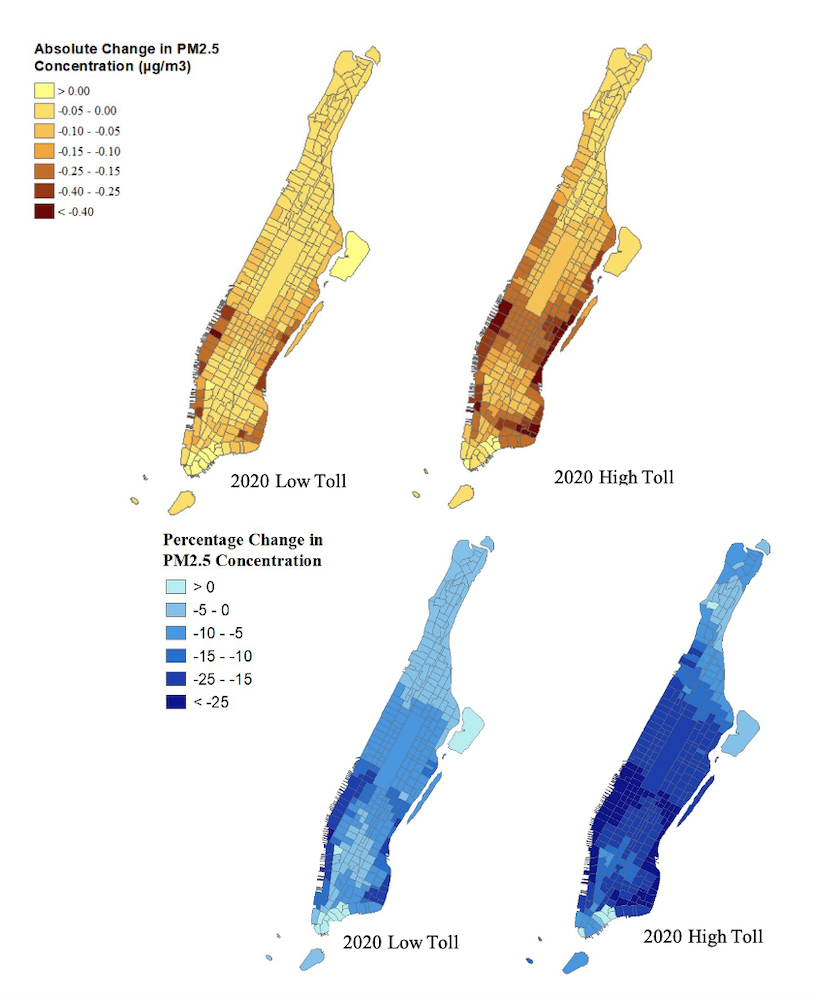Cordon Pricing, Daily Activity Pattern, and Exposure to Traffic-Related Air Pollution: A Case Study of New York City
/Abstract
Road pricing is advocated as an effective travel demand management strategy to alleviate traffic congestion and improve environmental conditions. This paper analyzes the impacts of cordon pricing on population daily activity pattern and their exposure to particulate matter by integrating the activity-based models with air quality and exposure models in the case of New York City. To estimate changes in the public exposure under congestion pricing scenarios, we take a sample of employees and study their mobility behavior during the day, which is mainly attributed to the location of the work and the time spent at work. We also study how congestion pricing can affect indoor air quality in different locations of the study area. Results indicate that implementing various cordon pricing scenarios can reduce the population-weighted mean of exposure to PM2.5 emissions by 7% to 13% for our sample, and in particular by 22% to 28% for those who work in the Central Business District (CBD).
Read the article →
Absolute and percent change in average daily PM2.5 concentration for pricing scenarios for the NYC area

